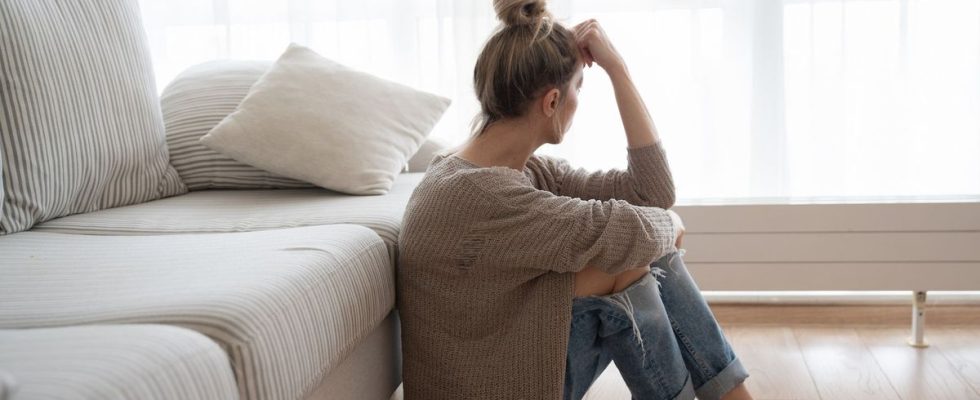Published on
Updated
Reading 2 min.
Marie Lanen
Head of parenting sections (baby, pregnancy, family), psychology and beauty

“This relationship is doomed to failure anyway”, “it’s too good to be true”… You’ve probably already thought of these sentences, especially in start of a relationship. You have undoubtedly been a “victim” of the double arrow phenomenon. Explanations.
Being vulnerable at the start of a relationship is not surprising. On the other hand, when our fears invade us, when we are unable to manage them; we may have a tendency to turn this pain against us. This is called the double arrow phenomenon. The latter can damage our relationships as therapist Geneviève Masse explains to our colleagues at Psychologies.
An unrecognized but common phenomenon
Although the phenomenon of the double arrow is not officially recognized in psychology, it is nevertheless common, particularly in our couple relationships. According to Geneviève Masse, it is a fear that invades us and that we are unable to manage emotionally: “We have difficulty accepting this fear. The notion of the second arrow is the outcome of control and it is the means that the brain has put in place to feel less of the pain associated with this fear. In general, by granting ourselves this pain, we ensure that we can control its intensity, so we shoot the arrow ourselves and we are able to anticipate the pain. We’ll say to ourselves ‘this relationship is doomed to failure anyway’ or ‘he/she won’t make the effort’ or ‘it’s too good to be true, I don’t deserve it‘”… So many wounds that we will inflict on ourselves.
Agree to question yourself to better understand the double arrow phenomenon
To deal with the double arrow phenomenon, it is essential to question ourselves and understand where this feeling that invades us comes from. Moreover, according to the therapist: “You have to know where it comes from, where it goes. We may ask ourselves ‘Why do I resist feeling things?’ We must also agree to look at ourselves and question ourselves“. If this work on you seems difficult, it is possible to be accompanied by a professional, therapist or psychologist in order to see things more clearly.
On the other hand, accepting to feel vulnerable appears important in the eyes of Geneviève Masse: “we must welcome this first arrow, and accept that we have the capacity to overcome any obstacle. You have to accept being in pain, being afraid“. What if the secret to a fulfilling and lasting couple relationship resided in the flaws and not (necessarily) in the strengths?

